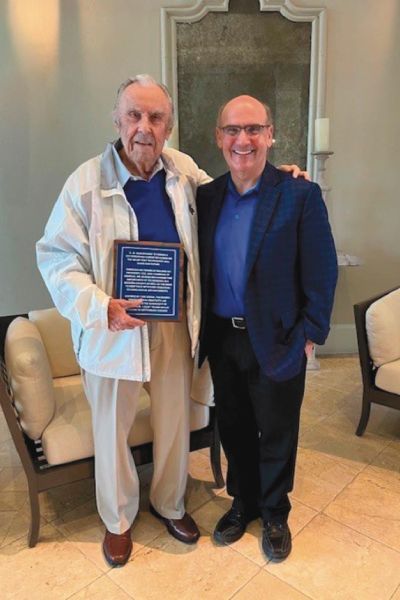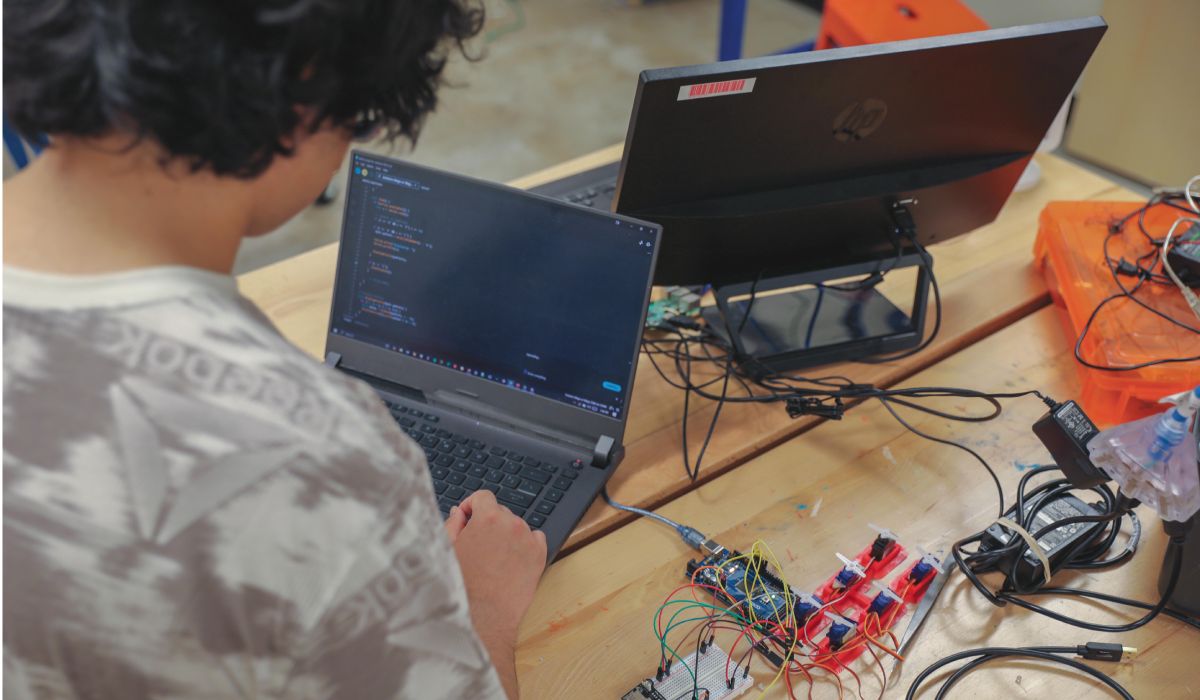
When Josh Wagner first stepped into Gettysburg’s Innovation and Creativity Lab (ICL) in the West Building in 2020, he visualized an animated classroom sprouting from the few pieces of equipment that stood before him. Today, the space has since blossomed into a 24/7 makerspace, with hundreds of Gettysburgians routinely exploring the latest technology, like 3D printers, vinyl cutters, and virtual reality goggles. Those who visit learn something new, build something they’re proud of, and envision new ideas to solve problems.
“It’s really fun to be able to give a space where people can feel free to try things,” said Wagner, the ICL’s manager.
The engagement with this makerspace reflects the nimbleness of the Gettysburg College community—resolute in its proclivity for innovation and desire to embrace change. When students’ needs evolve, so does Gettysburg’s education.
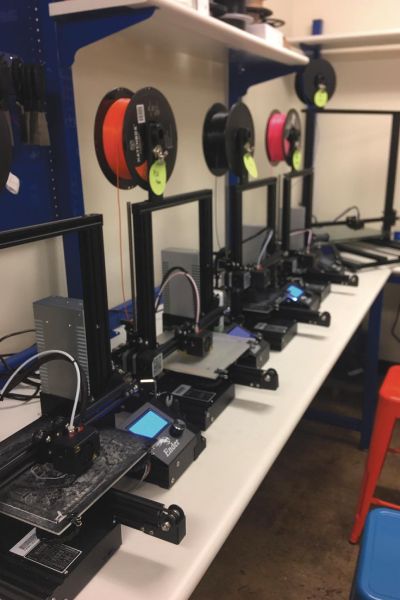
New offerings
The ICL is just one touchpoint of the innovation happening across campus every day. Gettysburg’s faculty offers a distinct academic experience by integrating curricular and pedagogical innovation—from offering new majors and interdisciplinary courses to bringing students’ learning beyond the classroom and into the community.
“A liberal arts education—and its focus on the education of the whole student, an education that occurs inside and outside the classroom—must be innovative if we are to respond successfully to the continually changing higher education environment,” Provost Jamila Bookwala said.
At Gettysburg, curricular changes are on the horizon, reflecting the College’s commitment to preparing students for an evolving world. Starting in Fall 2025, students can declare new majors in finance, public health policy, and communication studies, and all new students will take a data and society requirement in their first year and a seminar course on communities and change in their sophomore year. These new offerings focus on building students’ skills and career readiness—key elements of the Gettysburg Approach, which is Gettysburg’s premier method for delivering the undergraduate experience.
“Innovation at Gettysburg is grounded in the enduring skills that define the Gettysburg Approach—and not being afraid to step into a new space and try something out,” said Associate Provost for Academic Affairs Jeanne Hamming.
This past fall, Gettysburg announced its partnership with Loyola University Maryland to open a new accelerated Emerging Leaders MBA 4+1 program to Gettysburg College students. This spring, the College also established a master’s partnership with Syracuse University’s Maxwell School of Citizenship and Public Affairs, the top-ranked school for public affairs according to U.S. News and World Report. This summer, Gettysburg launched a new online Master of Education in Educational Design and Inquiry program to help fill our nation’s pressing need for highly qualified and compassionate K-12 teachers. With each new addition, Gettysburg College is stepping forward to meet the moment.
New tools
In 2022, two Gettysburg faculty members, Health Sciences Prof. Josef Brandauer and English Prof. Melissa Forbes, created artificial intelligence (AI) guidelines, putting the College ahead of the curve and helping students embrace AI as it swept the professional landscape.
“Innovation is a critical element of business that everyone should embrace. A significant portion of my time is spent empowering colleagues at all levels to brainstorm and implement AI,” said Garrett Goodwin ’21, a senior regulatory affairs associate at Pfizer who led this year’s most popular Alumni J-Term session, “AI in the Workforce.”
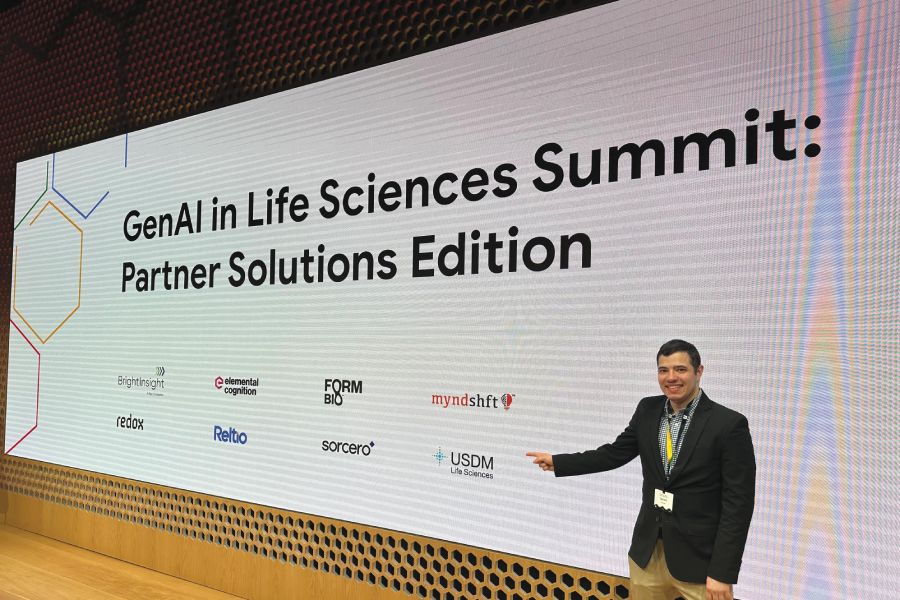
Providing students with creative tools helps them learn new skills and build confidence. The Garthwait Leadership Center (GLC) will soon offer VirtualSpeech, an AI-powered platform for virtual reality public speaking simulations.
“These tools and approaches take the learning beneath the surface,” said GLC Executive Director Andy Hughes. “Anytime you do a simulation, students are going to feel more engaged than if we were to talk at them for an hour.”
With these tools, Gettysburg College students graduate prepared to innovate in future careers.
“Innovation is important because the world is rapidly changing, and we all know that change is the only constant,” said Saim Joardder ’27, who designed a glove in the ICL that uses sensors to interpret sign language. “Professors are implementing new technology, and from a student’s perspective, I think they’re doing it well.”
New approaches
In the classroom, students witness innovation firsthand. Professor of Sociology in Educational Studies Divonna Stebick began to see exponential growth in her students’ academic performance when she instituted “ungrading,” where they are evaluated based on continuous reflection and feedback, rather than through a point system.
“I was amazed by how much more learning took place when I removed traditional grades and encouraged risk-taking,” Stebick said. “Students engaged more deeply, took ownership of their learning, and pushed their thinking further than I had seen with traditional grading.”
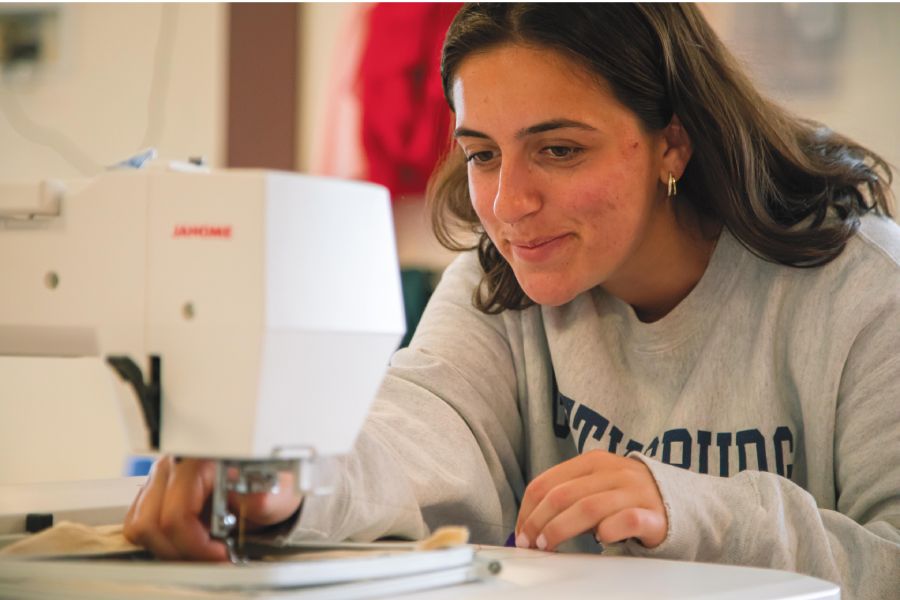
Emma Hladik ’24, one of Stebick and Wagner’s former students, can attest to the efficacy of inventive teaching styles.
“I learned how to be adaptable. I learned how to manage my time and go through projects and teach myself,” Hladik said. “Employers love it. It makes me stand apart.”
Faculty are also embracing unique approaches to classroom materials. Janelle Wertzberger, assistant dean and director of scholarly communications at Musselman Library, champions Open Educational Resources, which allow faculty to make custom textbooks.
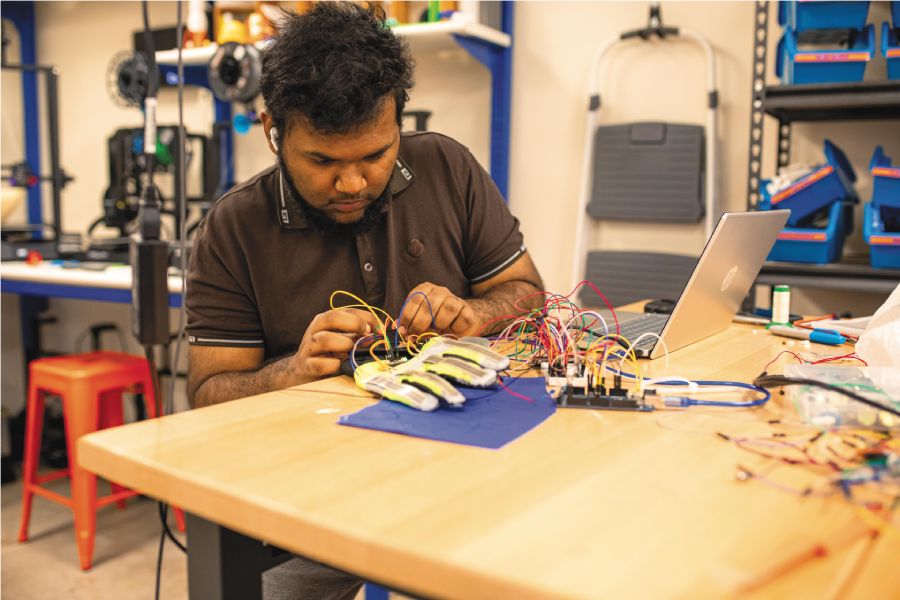
“I sometimes describe our courses as artisanal or boutique. So many of them have at least one extra twist that makes the course different than another institution. So, of course, they benefit from customized learning materials,” Wertzberger said.
New experiences
Innovation at Gettysburg means more than implementing new tools—it also means creating high-impact experiences that punctuate students’ learning.
More than half of students participate in student-faculty research, including Riley Dunbar ’27, research assistant to Music Prof. Jocelyn Swigger. They’ve been working on typesetting and publishing the previously unknown music of 19th-century Czech composer Agnes Tyrrell.
“Finding this research opportunity and seeing this new way to work with music as I was building my own compositional skills was very important to me,” Dunbar said. “It really helped me understand that the world of music—and the future of music—is actually very broad, and there’s a lot more that I can do than just perform or teach.”
“It also has been fun watching her become an expert in this particular composer’s style,” Swigger added.
In Mathematics Prof. Kim Spayd’s classroom, her students conduct groundbreaking research while learning to collaborate and communicate.
“There’s a need to synthesize multiple perspectives, apply knowledge in a creative way, and see through big ideas into the details. Doing this kind of work takes students well beyond more initial stages of learning,” Spayd said.

From research to fellowships, Gettysburg’s abundant co-curricular learning opportunities enhance students’ experiences and set them apart in job and graduate school applications.
“The Digital Technology Summer Fellowship gave me a good edge when I applied for the NASA internship,” said Alyssa Kaewwilai ’20, now a cybersecurity systems engineer for Raytheon Intelligence & Space. “They realized I could challenge myself with different domains.”
New Connections
Change is human. Innovations allow Gettysburg to deliver A Consequential Education in an authentic way that reflects the world around us.
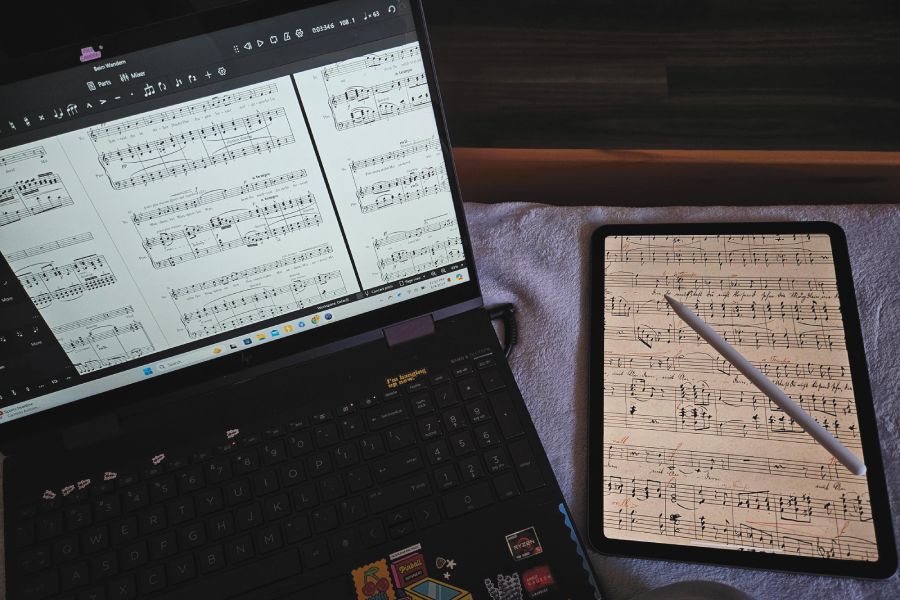
“Tradition is often a guide on how to accomplish things, but times and people change, and we learn more about how humans learn every year,” said Brandauer, who was recently named dean of academic advising and student success. “It is incumbent on us to adopt new, evidence-based methods that will benefit our students.”
Beyond the shiny new tools, there’s a person behind each new idea. Those people—faculty, staff, and students—innovate because they’re dedicated to the success and welfare of our community.
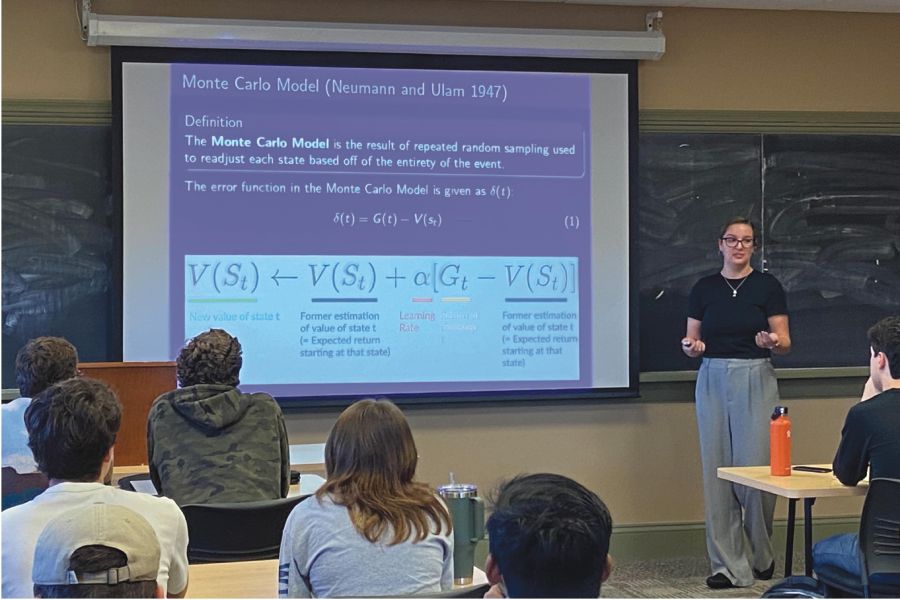
“The authentic and human connections we foster are at the heart of what we value most at Gettysburg College,” said East Asian Studies Prof. Junjie Luo, director of the Johnson Center for Creative Teaching and Learning. “Academic innovation provides me with new, meaningful ways to build and strengthen these connections.”
by Phoebe Doscher ’22
Posted: 08/22/25
